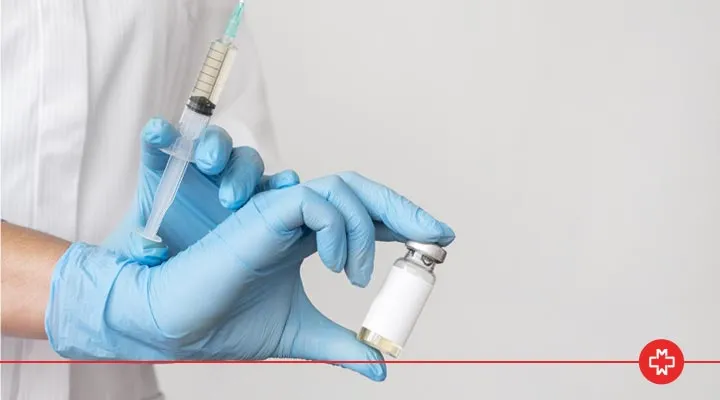Herpes is a sexually transmitted disease that globally affects around 3.7 million people under the age of 50. It is an extremely common infection caused by the herpes simplex virus (HSV). The primary way of contracting this infection is via sexual contact. After the initial contraction of the virus, it may lie dormant in your body and might become reactive a few times a year. Herpes causes outbreaks of itchy, painful blisters or sores that come and go. Most people infected with the herpes simplex virus (HSV) are asymptomatic. But still, even if the person who’s infected is not exhibiting symptoms he/she can transmit it to others. The most common question that comes up when people talk about herpes is that, is there a herpes cure or can herpes be cured at all? As of now, there’s no cure for herpes. Several research laboratories have worked on the herpes vaccine, but no one has been successful at developing an oral or genital herpes cure.
What is herpes simplex virus (HSV)?
There are two different kinds of Herpes Simplex Virus (HSV): Herpes Simplex Virus Type 1 (HSV-1) and Herpes Simplex Virus Type 2 (HSV-2). HSV-1 mainly causes oral herpes, which results in cold sores and fever blisters around the mouth and on the face. Whilst HSV-2 mostly causes genital herpes which results in sores around the rectum or genitals. It may also occur in other locations, but the locality of the sores is mainly below the waist. HSV-2 is almost always transmitted through genital-to-genital contact during sex. Both HSV-1 and HSV-2 can be asymptomatic due to which they remain unrecognized amongst individuals but sometimes it may cause symptoms of painful blisters or ulcers at the site of infection.
Is there a vaccine for herpes?
As we mentioned previously, most people who contract the herpes infection may not experience any symptoms, which means the virus can at times go undetected in the body and the immune system might not react to it right away. This makes it difficult for scientist and medical researchers to make an effective herpes vaccine. Whenever a vaccine is developed, it mainly is created to target the part of your immune system that reacts to a virus or bacteria (recognized by the body as an invader). The vaccine teaches your body how to kill the virus or bacteria before it affects your body and makes you sick. In the case of HSV, the virus that causes herpes, the immune system in most cases can’t recognize the virus which makes it difficult to develop a herpes vaccine.
In the past, there have been some studies for the herpes vaccine and various herpes cure research, which have had good results. But most of these studies had animals as samples for the research and when the same tests were conducted on humans the results were not as promising as they were on the animals.
Currently, there are three anti-virals approved by the U.S Food and Drug Administration (FDA), for genital herpes: Acyclovir (Sitavig and Zovirax), Valacyclovir (Valtrex), and Famciclovir (Famvir). But for now, there aren’t any approved herpes vaccines.
Why is creating a Herpes Vaccine difficult?
The Herpes Simplex Virus (HSV) has a much more complicated DNA than the other infections and can easily go undetected by the immune system, very much like many cancer cells do and since vaccines are mainly formed by stimulating the immune system, it is way harder to create a herpes vaccine since the basic immune response towards the virus can’t be traced in most cases. The HSV infection can remain dormant and hideaway in a person’s nerve cells for months or years before appearing and activating the symptoms of the infection. According to many experts, even if antiviral drugs destroy the activated parts of the infection, it is likely that a small amount of the virus may hide in the nerve cells and go dormant for a while and reappear in a few months or years.
Will there ever be a herpes cure?
There are conflicting views on whether there will be a herpes cure or not, but since it infects so many people worldwide, researchers and scientists must create a herpes vaccine.
To find a treatment for the virus, the scientist first needs to understand the mechanism that enables the virus to hide in the nerve cells and go dormant for months or years. By tackling this problem, they might be able to kill the infection before it hides away.
In late 2020 and early 2021, while exploring the new genital herpes treatments, scientists came up with microbicides, which are chemicals that protect against infections caused by viruses, by killing microbes, before they enter the body. Studies have shown that this may be able to cure herpes and is considered a herpes vaccine progress in the last few years. Although this new revelation seems promising, there have been mixed results.
The Bottom line
While herpes cure research is in progress, it is imperative that people take the necessary precautions to prevent the spread of the HSV infection. According to preventive care doctors, it is suggested not to engage in sexual activities if the herpes symptoms are active and you have sores around your mouth or genitals. Even if the symptoms are dormant, you must use a condom and adhere to other safe sex practices.
Another preventive measure is to get an STD test done. It’s important that you get tested for herpes to be aware and take the necessary medications to prevent the symptoms of the infection.
– Disclaimer –
This blog is for informational & educational purposes only, and does not intend to substitute any professional medical advice or consultation. For any health related concerns, please consult with your physician, or call 911.
-
About The Author
Dr. Syra Hanif M.D.Board Certified Primary Care Physician
Dr. Syra Hanif is a board-certified Primary Care Physician (PCP) dedicated to providing compassionate, patient-centered healthcare.
Read More







